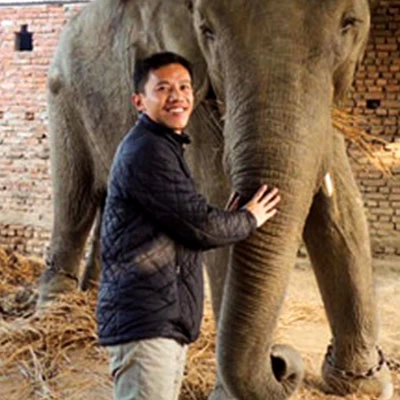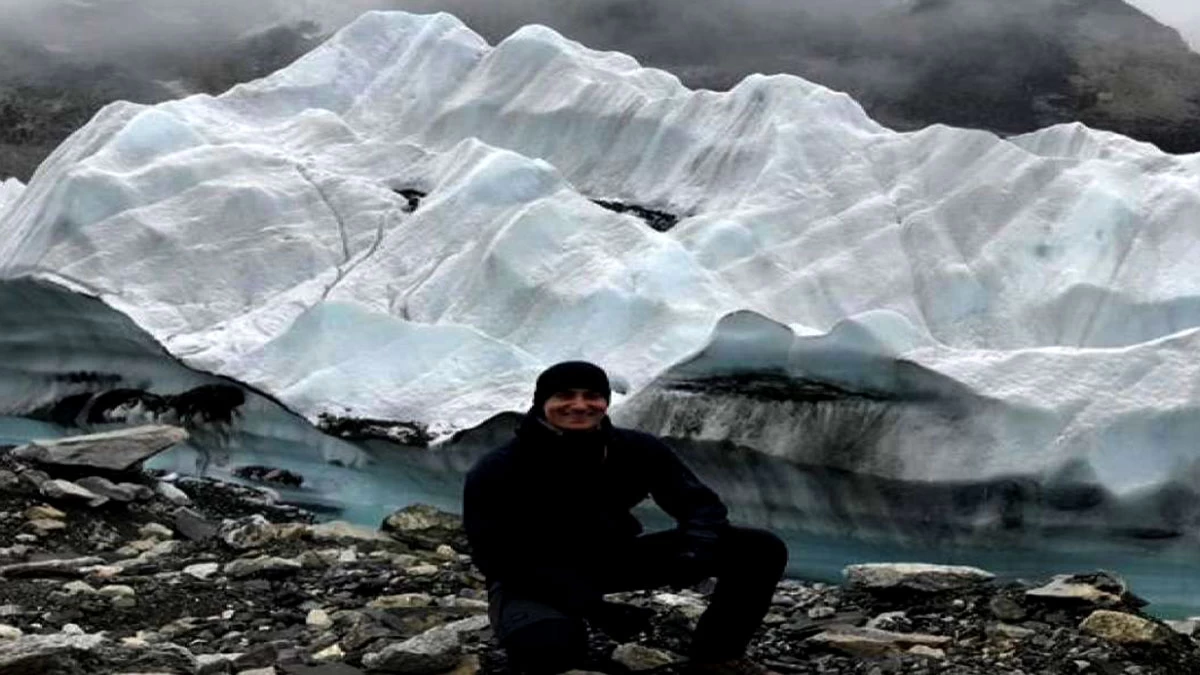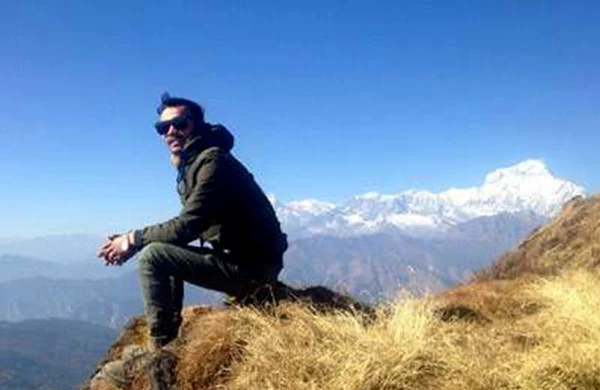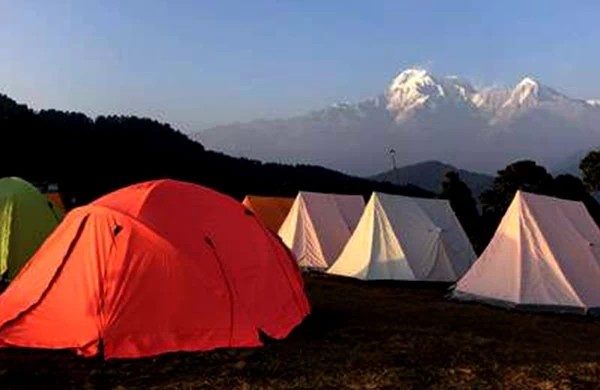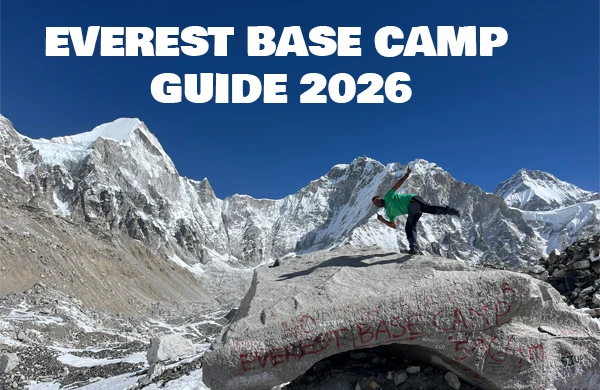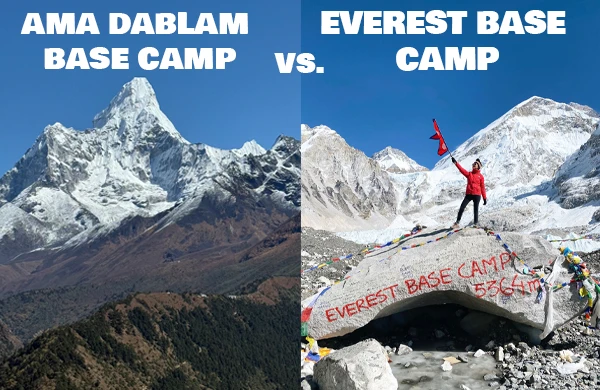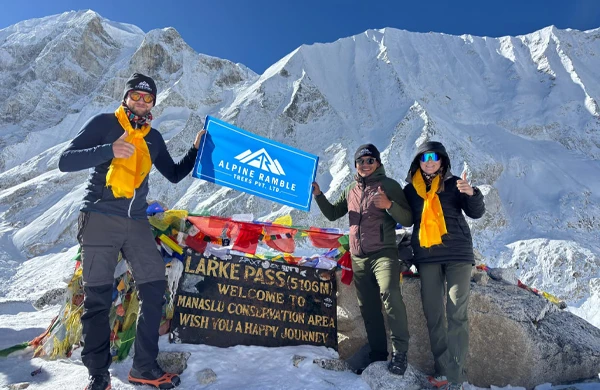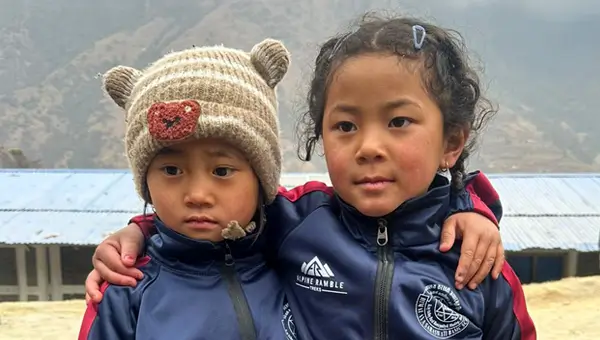Reaching Everest Base Camp is one of the goals of travel enthusiasts all around the globe. EBC is the base of the world's highest mountain, Mt. Everest (8,848 m).
Every year hundreds and thousands of trekkers go on Everest treks to traverse the mystical corners of the Khumbu region, witness the most tempting views of the Himalayas, and experience the rich culture of the Sherpas. The trek itself is a life-changing experience.
From the very beginning of the venture, you will get to see the wonderful scenery, snow-capped mountain views, dense forests, and picturesque valleys.
Everest base camp trek presents different ecosystems and climatic zones. Trekking through lush forests of rhododendron, fir, pine, juniper, etc, you reach a treeless area with no human settlements.
Views of Himalayan mountains like Mt. Everest (8,848 m), Mt. Lhotse (8,516m), Mt. Nuptse (7,855m), Mt. Pumori (7,161m), Mt. Cho Oyu (8,201 m), Mt. Makalu (8,481 m), Mt. Ama Dablam (6,812 m), Mt. Thamserku (6,623 m), Island Peak (6,189 m), Mt. Kongde (6,187 m), etc decorate the entire trail.
Regardless of all these exotic experiences there are many things that you have to know and be well-prepared before going on Everest Base Camp Trekking.
Here in this blog, we will inform you about the things that you should know before going on Everest Base Camp Trek, and things that will help you to have a successful venture.
Best time to go on Everest Base Camp Trek
Nepal has five seasons like many other countries; Spring, Summer, Monsoon, Autumn, and Winter. Among all these seasons Spring and Autumn are the best time to go on Everest Base Camp Trek or any other trek in the Everest region. Spring includes months from March to May, and Autumn includes months from October to November.
As per the data, Spring and Autumn have the most stable weather and moderate climate. Even though you will feel cold in the morning and night due to the high elevation, still the daytime is warm and sunny, perfect for walking.
Likewise, Spring welcomes hundreds of flora and vegetation that make the trail more beautiful, whereas Autumn is the season of the festival in Nepal.
The altitude of the EBC trek
If you are following the general route, then Everest Base Camp Trek begins from Lukla (2,800 m). A short flight from Kathmandu/Ramechhap takes you to the starting point of the trek.
As Lukla is at a high altitude, you descend to Phakding (2,610 m) for a night's stay. From here, you gradually pass by villages like Namche Bazar (3,438 m), Tengboche (3,860 m) Dingboche (4,410 m), and Lobuche (4,940 m) before reaching Everest Base Camp (5,364 m). The trail further ascends to Kala Patthar (5,545 m), which is a very popular viewpoint located above EBC. This is also the highest point on the trek.
Altitude Sickness
.jpg)
Everest Base Camp Trek is a high-altitude journey that takes you above 5,000 meters from sea level. This welcomes a common illness called altitude sickness or Acute Mountain Sickness (AMS). If your body is not properly acclimatized to the altitude, then you can suffer from AMS regardless of your age, health, and physical fitness.
Read below to know the symptoms and preventive measures of altitude sickness:-
Symptoms
-
Shortness of breath
-
Headache
-
Increased heart rate
-
Difficulty sleeping
-
Tiredness
-
Loss of appetite
-
Upset stomach
-
Nausea and vomiting
-
Dizziness
-
Feeling unsteady
Preventive Measures
-
Take plenty of rest
-
Keep yourself hydrated
-
Descend to a lower altitude
-
Eat high-calorie food
-
Do not smoke, drink or consume tranquilizing medicines
-
Ascend slowly and gradually as you reach higher
-
Don't push yourself
Everest Base Camp Trek difficulty
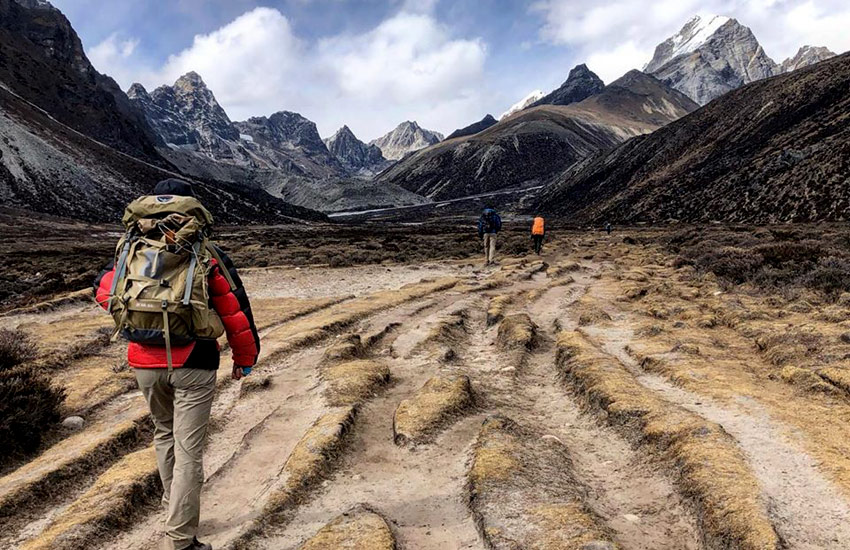
One of the questions that every trekker has is, how difficult is the Everest Base Camp trek? Can I do Everest Base Camp Trek?
Before we answer these questions for you, we want to give you a little overview of the trial. So, it can help you analyze the difficulty level of the EBC trek for yourself.
Everest Base Camp Trek venture in one of the remote regions of Nepal on the Himalayan terrain. The trail is not difficult in terms of technical climbing, but there are many ascends and descends through steep, rugged, and forested paths.
You will be trekking through dense forests, hillsides, glaciers, and moraines along with crossing many streams and thrilling suspension bridges. On average, you trek for 6 to 7 hours a day. Another thing to know is the altitude that increases as you move towards your destination. If your body did not acclimatize to the altitude, then there are high chances of altitude sickness, which in the worst case can ruin the entire trip.
Now, that you are aware of the trail, we would like to mark Everest Base Camp Trek is a moderate trek. If you have previous trekking experience, then it will really help you during the trek. For new trekkers, Everest Base Camp trekking is also possible.
However, we recommend you to go on short hikes and do exercise to increase your stamina as well as muscular power before the commencement of the trip.
Food & Accommodation during Everest Base Camp Trek
As per your budget, you can choose to say either in the lodge or guesthouse. There are also man ranges for lodges. Some are specially made to offer a luxurious experience, and their cost is also high. In general lodge or guesthouse, the rooms are small and on a twin-sharing basis.
If you are looking to get a single room, then you have to pay double the price. washrooms are usually communal. The rooms come with a few pieces of furniture with a bed, blanket, and pillow. The dining area is the common space, where you can spend some time warming yourself.
During the trek, meals will be served as per the menu of the lodge or guest house. In Namche Bazar, you get many options for food. You can expect to find dishes like sandwiches, pasta, noodles, pizza, curries, eggs, bread, pastries, meat, etc.
As the altitude will increase the menu will also get limited and expensive. Drinking water is available almost everywhere. You can refill your bottle every time it gets empty.
Everest Base Camp Trek cost
There are many factors that add up to the cost of Everest Base Camp Trek. If you are trekking with a travel agency then the package cost usually includes things like all ground transportation as per the itinerary, accommodation & food during the trek, permits, and the expense of a guide as well as porters.
Still, many things are not covered by package costs like travel insurance, airfare, personal expenses, tips, etc. You can get in touch with us to know more in detail about the prices.
Travel Insurance for EBC
Getting travel insurance, especially while traveling in remote areas is like security on which you can rely and enjoy your trip without any worries. We highly recommend getting good travel insurance that covers things like emergency airlift, medical bills, theft, and property losses before going on Everest Trek.
In Nepal, as per the rules, you need to pay priorly before air evacuation or treatment in hospitals. Having travel insurance will keep you apart from these things. Many companies offer travel insurance. Make sure to choose the best option for you.
How to train the body for Everest Base Camp Trek?
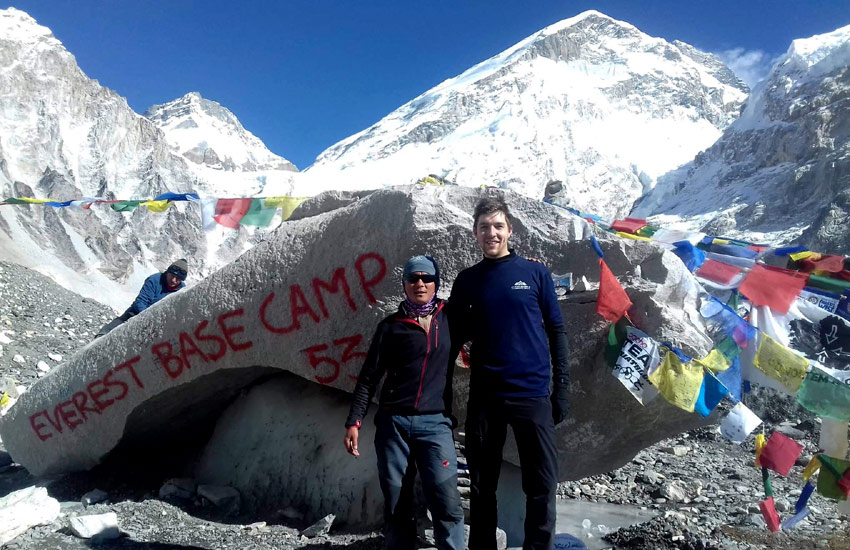
Everest Base Camp Trek does not require you to be a professional trekker. Anyone can go on this trek, but you have to be in good health and fitness to enjoy the trail. Below are a few things you can do as a naive trekker before the commencement of the trek:-
-
If possible go on a few short hikes
-
Start exercising at least a month before the trek
-
Running, swimming, and cycling are a few of the good cardio exercises without going to the gym
-
Increase your stamina and muscular power by doing push-ups, squats, dead-lifts, pull-ups, etc
-
Don't overdo yourself. Your goal should increase physical stamina and lung power
The documentation you should carry while Everest Base Camp Trekking:
Here are some documents that are required before going to trek:-
-
Passport
-
Visa
-
Few passport-sized photos
-
Insurance papers (depending on the agency)
-
Proof of any payments you have done to the company you are traveling with
-
Permits
Things you should know before buying the gears for Everest Base Camp Trek
-
Footwear should be very comfortable. Make sure to get a size bigger than yours so that you can wear thick socks inside it
-
Make sure the shoes you get have good fabric and are waterproof
-
Layering can help you keep yourself warm and avoid carrying only bulky clothes
-
Pack your clothes as per the season
-
Your clothes should be lightweight
-
Not every gear you have to carry from your hometown. You can get a wide range of gear brands in Kathmandu as well.
-
The checklist should only help you as an overview, not all the items on it are required every time. Therefore, contact your agency to know about the weather and things you have to carry during your trip
-
Meet your doctor and inform him about the trip. Get all the medications beforehand that you might need because you may not find medicines from the same company in Kathmandu
-
Keep your hands, head, and body as warm as possible
Everest Base Camp Trek Packing List
There are many things to prepare before the EBC trek. Below is a list of things, you will need to get for the trek. Also, you can buy or rent these gears in Kathmandu as well.
-
Thermal tops
-
Fleece jacket or pullover
-
Windcheater/waterproof shell jacket
-
Down jacket
-
Fleece/wool trousers
-
Trekking pants
-
Mittens/woolen gloves
-
Hiking/warm socks
-
Trekking boots with spare laces
-
Pair of flip flop
-
Gaiters
-
Underwears
-
Cotton trousers/t-shirts
-
Sun hat/scarf/benni
-
Sunglasses with UV protection
-
Sleeping bag
-
Day bag
-
Headlamp
-
Plastic bags
-
Small lock
-
Reusable water bottles
-
Water purification tablets
-
Small wash towel
-
Toiletries (wet tissue, quick-drying towel, toilet paper, moisturizers, lip balms, sunscreens, sanitary pads, hand sanitizer, nail clipper, small mirror, toothpaste & brush, etc)
-
Basic first aid kit
-
Extra (camera, extra batteries, journal, pen, travel games, binoculars, snacks, books, etc.
